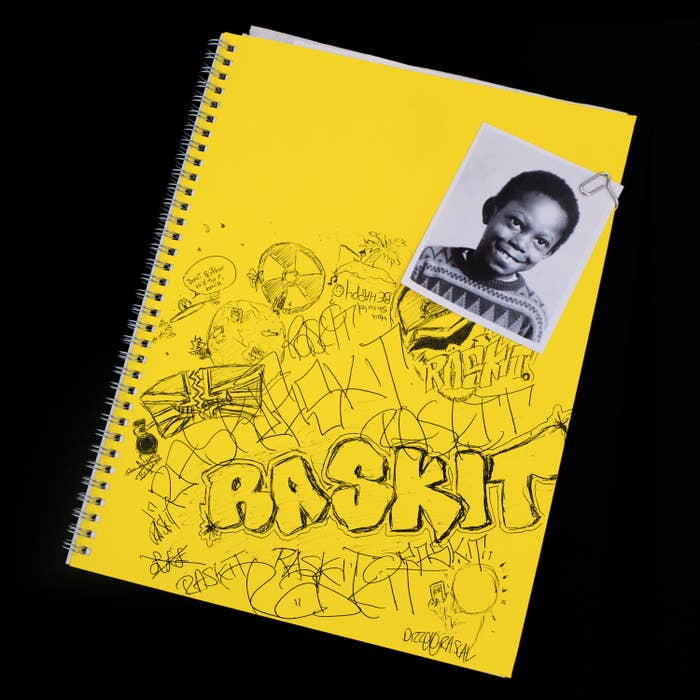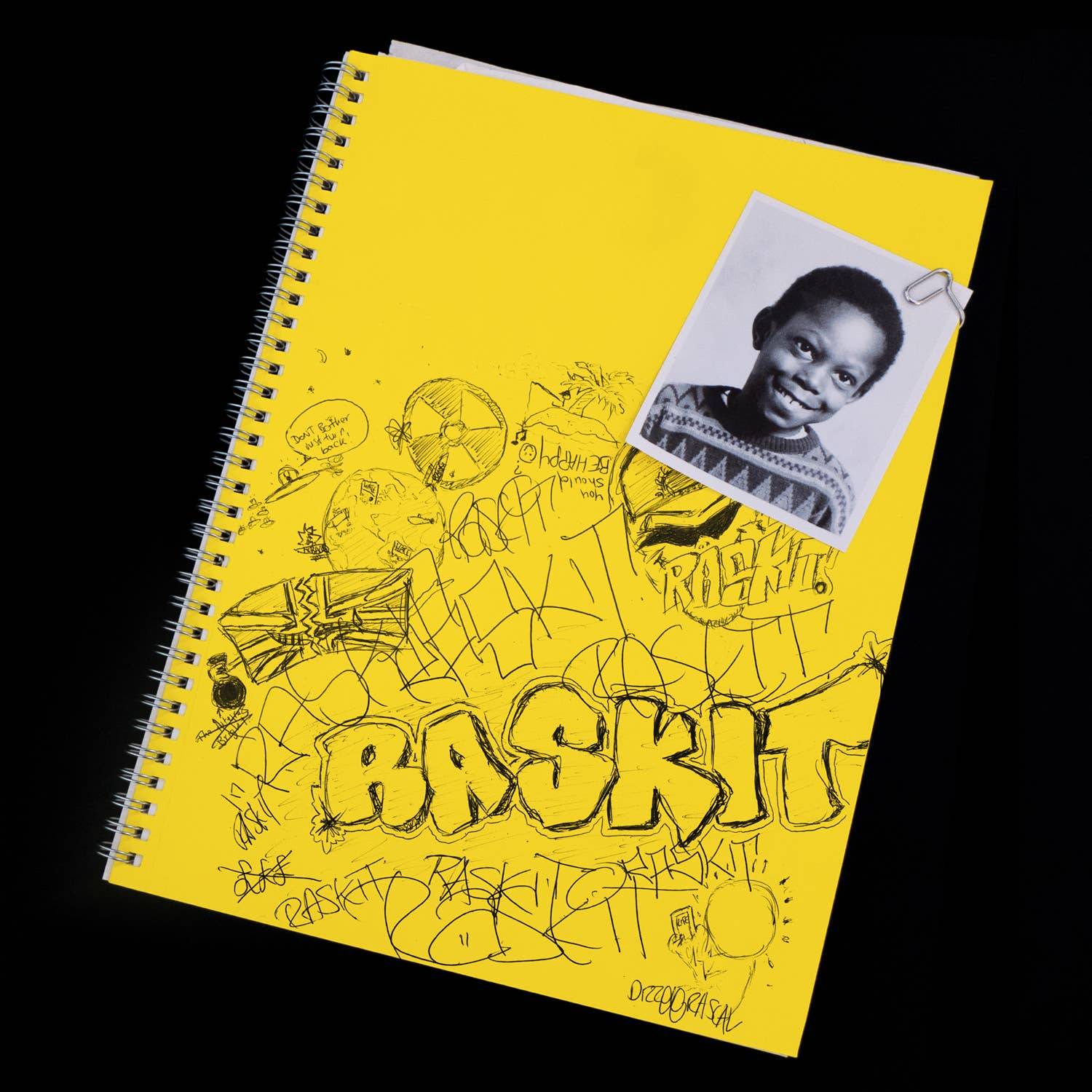
Few artists have a more contentious relationship with their fans than Dizzee Rascal, grime boy wonder turned electro-pop chart topper. After being anointed the voice of a generation by not only said generation, but also a whole cadre of journalists eager to use his Mercury Prize-winning Boy In Da Corner to prove their own political points, Dizzee went rogue. Drawn in by his sparse, angular production? Too bad, he's on Calvin Harris' wave now. Day-one fan since Rinse? You're not the target audience. Holding your breath for a Wiley reunion? You've long since asphyxiated. There's no denying it: Dizzee's been running away from his grime roots far longer than he's ever embraced them, and quite profitably at that. Not since Tricky has a British artist's middle finger to the establishment got spun back towards his own critics and fans so quickly.
Depending on just how salty the above makes you feel, you'll find Raskit, the Bow E3 MC's long awaited swear-on-me-mum-its-not-grime return to beats and bars, either thrilling or infuriating. Thrilling because it's easily his best record in over a decade, infuriating because he's still the same legacy-rejecting contrarian that he has always been. Yes, he'll open the LP with his roughest track in years ("Focus"), but he'll end it with a skit that asks: "What's Brexit? Do you mean Brixton?" #Grime4Corbyn this isn't.
Still, no matter what Dizzee says, this is a grime album. No amount of tongue-wagging in interviews can wish that reality away. While he loathes comparisons to either peers *cough* Skepta *cough* or followers like Stormzy, this album taps directly into the high speed, percussive beats and tear-at-your-throat rhymes that have defined grime since Boy In Da Corner. Early tracks "Wot U Gonna Do?" and "The Other Side" in particular just ooze with London sub-bass and paranoid self examinations, words bouncing off the hi-hats like we stepped into a Tardis set to Bow 2003. When Dizzee rejects Wiley's overtures and insists he's living in the now, that's the sound of the Rascal protesting too much.
True, once the album settles into a groove the BPMs dip and it's tempting to take Dizzee at his word and believe he's shifted towards hip-hop. But twisting US rap into his own thing has been the Rascal approach since day dot. Occasionally the tempos and drum patterns nod towards America, but just as Dizzee once synthesized UGK and UKG into a unique London sound, Raskit's American influences are always transmuted into something uniquely grimey. Is the flow on "Business Man" bounce or junglist? Is the flute sample tapping into trap's current obsession with woodwins or London's own history with rare groove? There's no wrong answer here, and it doesn't hurt that the "cutting edge" American sounds Dizzee's drawing from owe a large debt to grime anyway. Dizzee might finally be ready to return to the sounds that made him, but just as importantly, the world has finally caught up.
Genre quibbling aside though, Raskit also shines bright in Dizzee's catalog because of what it doesn't do. Gone are the awkward Robbie Williams collaborations or prefab summer festival anthems courtesy of super-producers whose idea of grime is the stuff behind their fridge. Those naked crossover attempts diminished even the stronger moments on Tongue N' Cheek and The Fifth, but Raskit's softer moments actually feel like logical extensions of the album's rougher ones, balancing things out.
"She Knows What She Wants" bounces like the sunniest G-Funk, but just as importantly, it works as a perfect prelude to "Dummy"—a nocturnal rhyme clinic where Dizzee digs deep into his anxieties. The only obvious misstep is "The Way I Am", tucked away late in the album, but at that point, he's accumulated enough goodwill to let that sub-Chris Brown hook slide. The past year and a half has seen some of best album releases in grime's history, but Raskit might be the most sonically cohesive, and the most musically satisfying.
Alongside this return to coherent sonic identity, the other major shift in Dizzee's approach is just how much he's opening up. Boy In Da Corner's abrasive beats thrilled and impressed, but Dizzee's naked emotion and uncut rage was just as important a factor in its connecting with fans across the UK and the globe. Whatever you may think of his festival tracks, they weren't very revealing, so it's a thrill to hear Dizzee with so much to say on Raskit. Foes get dismissed, youngers get schooled, and ladies get finessed, all without the dollop of clichés that hamper most emcees. "Slow Your Roll" is a particular highlight in this regard, as Dizzee dispenses advice without falling prey to the standard politicking or empty sentimentality.
So here we are. In just 16 tracks, Dizzee Rascal's shot past the competition to reclaim his rightful place at the top of grime's pecking order, and it sounds like he doesn't even want the job in the first place. By any measure, it's a remarkable success, but considering just how aimless the Dizzee Rascal brand has felt since Maths+English, it's a complete shock. Now with any luck, the album will be a success and we can convince him to stick with this direction, but knowing Dizzee, he's already thinking up ways to have us pulling our hair out. I just hope it doesn't take another 10 years for him to drop another record worth loving.

